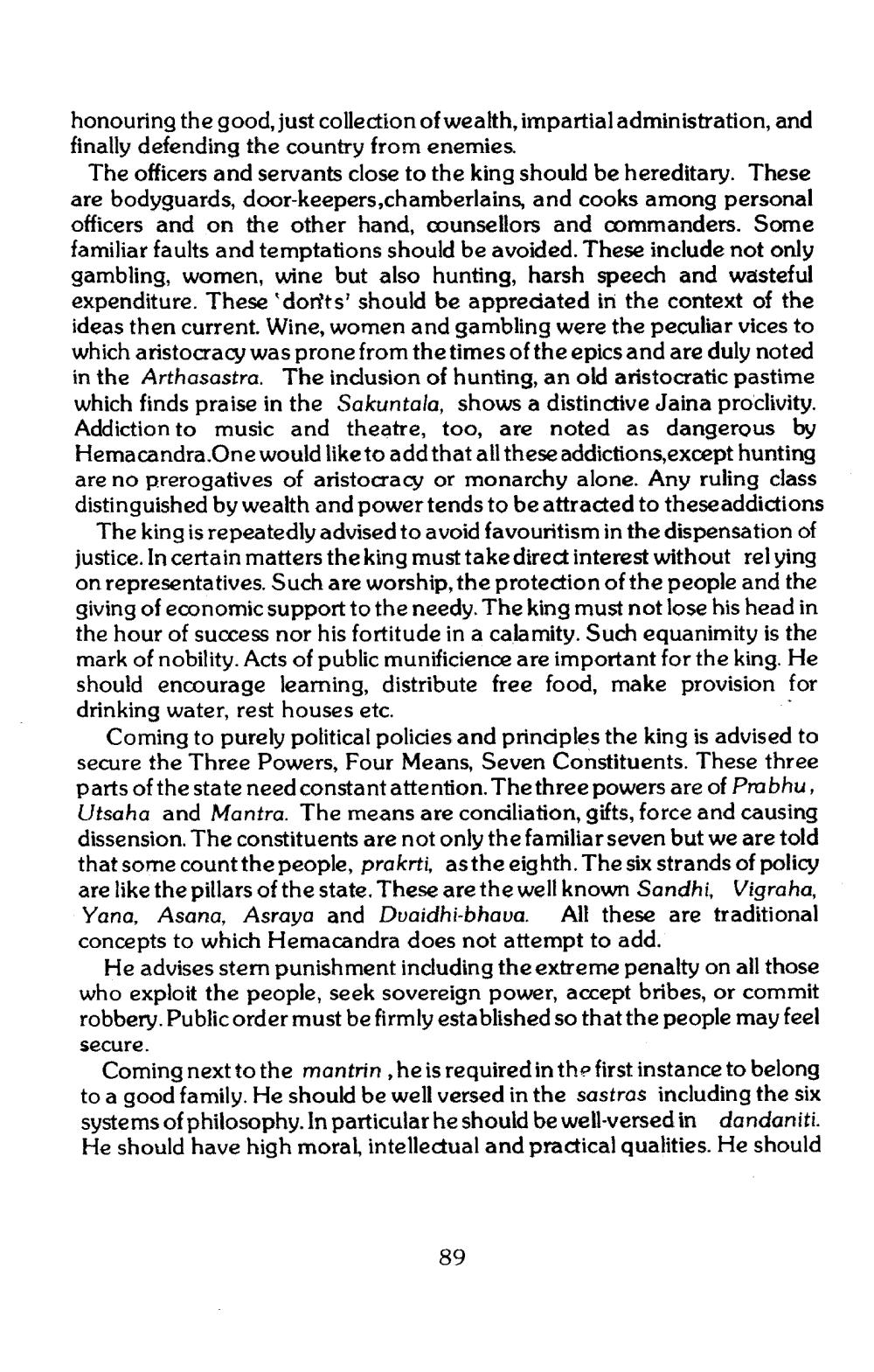________________
honouring the good, just collection of wealth, impartialadministration, and finally defending the country from enemies.
The officers and servants close to the king should be hereditary. These are bodyguards, door-keepers,chamberlains, and cooks among personal officers and on the other hand, counsellors and commanders. Some familiar faults and temptations should be avoided. These include not only gambling, women, wine but also hunting, harsh speech and wasteful expenditure. These don'ts' should be appreciated in the context of the ideas then current. Wine, women and gambling were the peculiar vices to which aristocracy was prone from the times of the epics and are duly noted in the Arthasastra. The inclusion of hunting, an old aristocratic pastime which finds praise in the Sakuntala, shows a distinctive Jaina proclivity. Addiction to music and theatre, too, are noted as dangerous by Hemacandra.One would like to add that all these addictions, except h are no prerogatives of aristocracy or monarchy alone. Any ruling class distinguished by wealth and power tends to be attracted to theseaddictions
The king is repeatedly advised to avoid favouritism in the dispensation of justice. In certain matters the king must take direct interest without relying on representatives. Such are worship, the protection of the people and the giving of economic support to the needy. The king must not lose his head in the hour of success nor his fortitude in a calamity. Such equanimity is the mark of nobility. Acts of public munificience are important for the king. He should encourage learning, distribute free food, make provision for drinking water, rest houses etc.
Coming to purely political policies and principles the king is advised to secure the Three Powers, Four Means, Seven Constituents. These three parts of the state need constant attention. The three powers are of Prabhu, Utsaha and Mantra. The means are conciliation, gifts, force and causing dissension. The constituents are not only the familiar seven but we are told that some count the people, prakrti, as the eighth. The six strands of policy are like the pillars of the state. These are the well known Sandhi, Vigraha, Yana. Asana. Asrava and Duaidhi-bhava. All these are traditional concepts to which Hemacandra does not attempt to add.
He advises stern punishment including the extreme penalty on all those who exploit the people, seek sovereign power, accept bribes, or commit robbery. Publicorder must be firmly established so that the people may feel secure.
Coming next to the mantrin , he is required in the first instancet to a good family. He should be well versed in the sastras including the six systems of philosophy. In particular he should be well-versed in dandaniti. He should have high moral, intellectual and practical qualities. He should
89




